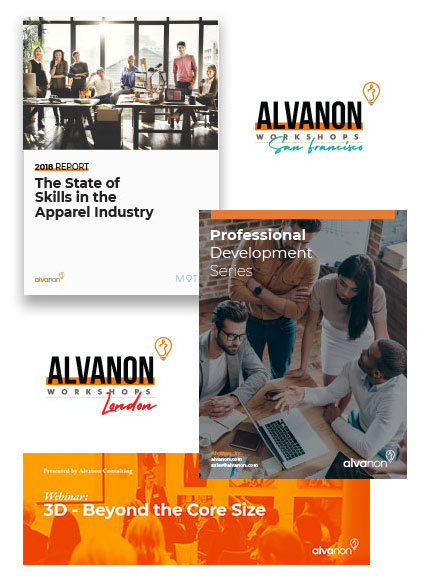To explore the future of skills in retail, we spoke with Jackie who is now the director of course development at MOTIF
The role of bricks and mortar stores is shifting, online shopping is now an essential platform for retailers, and the fast fashion model has evolved as a result of growing competition and expectations of consumers. As it is currently predicted that in the next 5-10 years, some 60% of roles and 30% of tasks people perform will be automated, the types of jobs and skills needed in the sector are going to change significantly.
This is why upskilling and skill sharing is crucial, to prepare the future workforce for these changes and ensure that they can work alongside technology but also understand the fundamentals of the industry. So, how has your business kept up with the ever-evolving industry and how are the skills in your team changing in order to do so?
Having worked in retail for 25 years, managing product development and technical teams for brands including C&A, Shop Direct and Missguided, Jackie Lewis is no stranger to the challenges of this rapidly-evolving market. To explore the future of skills in retail, we spoke with Jackie who is now the director of course development at MOTIF, which is an e-learning platform for retail professionals launched recently by Alvanon. As a specialist in fit and sizing strategies, Jackie is using her expertise to develop courses and close the skill gaps in the sector.
Find out what changes we might expect to see in the retail sector and how this will affect teams of the future.
How is technology evolving fashion roles?
J: “There is a lot of disruption in the industry at the moment. An ability to work at a product level, but also understand data and analyse that data, is fundamental to determine whether your product is hitting the right target market. These are two skills that have traditionally formed polar opposite roles. You were either a product person or a numbers person. That’s not the case anymore. It is now increasingly common for pattern cutters to understand basic coding.
“We are going to see more roles coming together. And I think the biggest challenge will be finding people who have blended skill sets. Someone who is both technical and quality focused, has a good aesthetic eye and understands trends.
“An individual’s interpersonal skills are also crucial in the fashion industry. Whatever path you take, being able to communicate with people of all levels and cultures, is very often what will differentiate you from another candidate.”
What is the future of design and development teams?
J: “Technology and sustainability. These two headline trends require people who understand production. Importantly, how to create product – it’s not just about buying. You need great product engineers, to bring those things to market. It’s a well-known fact that sustainability is impacted by the product development process. So, you can have a great designer and a great idea and concept, but you also need a technical developer to take that product all the way through the production process to commercialise it. I think that the other important point here, around product development, is product differentiation. How do you create a point of difference compared to your competition, if you haven’t got people in your business that can create unique product? What takes real expertise is creating your own version of trends and creating it before anyone else. To do that you need really talented designers.”
How has the evolving pace of the fashion industry impacted businesses in the sector?
J: “I have worked in bricks and mortar retail as well as online businesses. But the fast fashion model is very different and requires businesses to being able to react to the now, to what you see on Instagram. That’s what the customer wants, they want their version of whatever celebrities are wearing that week or that moment. The product development process is light touch, so you might see something one day, the design is out to the supplier within a few hours, and the sample is back in just days. You haven’t got the luxury of fine-tuning or getting in multiple samples to check the quality and fit. That takes a different mindset entirely. If you don’t get it to market right then, you have lost the moment. If it is 80% right, it is ethically sourced, and the fit is more or less right, it will sell. There are some risks associated with that though.”
What are the risks of the fast fashion model?
J: “Returns. This is something that you are constantly taking a risk on. Then there is also risk from the point of view that if you haven’t got the right suppliers set up, who really understand your customer, or your production may end up in a unit that you don’t want, your brand or quality may be compromised.
“The other thing with the fast fashion model, is how they work with fabric and what the impact that has on lead times is, e.g. fabric dyeing, processing, and fabric approval. With the fast fashion model, you are working to very similar fabric bases. You are working closer to home, even for fabric, so lead times are shortened. And a lot of the time you are working to what is available, rather than dyeing it for a specific order. So that is quite different from a standard model. You need commercial people on board to be able to step away from the detail a little bit, who understand the bigger picture when delivering speed.”
Evolving skill sets
J: “Whether you are a graduate, or already in the industry, you have got to be constantly learning something. Do your job because you want to learn. Be brave and try new things. The industry is moving so fast. You can very quickly become irrelevant. Stay ahead of what’s new. I think a lot of businesses are coming around to this now, they understand that retention is key. The people coming through into the market now expect training and development in their role. You need to be constantly engaging and enriching your team.
“There are different ways of doing this. We talked about fast fashion earlier and I think we need to apply this model to learning. Be nimble, fast, and relevant.”
To learn more about MOTIF eLearning courses, register your account today at motif.org or for corporate enquiries please contact Jackie Lewis or sales@motif.org.
This article was originally published on Michael Page.





